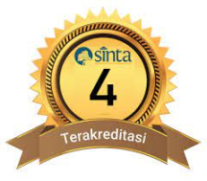Pembuatan modul fisika berbasis pendekatan sets pada materi pemanasan global dengan konsep zerowaste lifestyle (pola hidup minim sampah) untuk peserta didik SMA/MA kelas XI
Abstract
The purpose of this study to develop a Physics Module based on the approval of "science, environmental technology, and society" (SETS) which expected to improve students attitudes, skills, and students perspectives to understanding in environmental management. This type of research is "Research & Development" (R&D) using Plomp model. The validity assessment of the modules was obtained from 3 Physics lecturers at the Faculty of Mathematics and Natural Sciences UNP as experts, as well as the practicality value of one to one and small groups obtained from students of class XI SMA Pertiwi 1 Padang. The instrument collects data using validity test sheets and practicality tests. The data analysis technique used is descriptive statistical analysis.
Based on the analysis of research data, the results obtained from the Physics Module based on Obtaining SETS with the concept of lifestyle zerowaste have an average value of 91.52 with a very strong category of validity. Then, in terms of the use of the Physics Module it has an average practicality value for one 77.19 with a quite practical category. Whereas the mean value obtained in the Assessing components of small group practicality is 81.87. So, it can be concluded that the SETS-based Physics Module with the zerowaste lifestyle concept of global material is valid, and practically used as a source of independent learning for high school students in class XI.Full Text:
Download PDFReferences
Undang-Undang Republik Indonesia No. 20 Tahun 2003 tentang Sistem Pendidikan Nasional.
Mulyasa, E. 2014. Pengembangan dan Implementasi Kurikulum 2013: Perubahan dan Pengembangan Kurikulum 2013 Merupakan Persoalan Penting dan Genting. Bandung: Remaja Rosdakarya.
Depdiknas. 2007. Naskah Akademik. Jakarta: Departemen Pendidikan Nasional.
Zulfiani, dkk. 2009. . Strategi Pembelajaran Sains. Jakarta : Lembaga Penelitian UIN Jakarta
Snow, et al. 2003. The Road to Zero Waste: Strategies for Sustainable Communities. Auckland. Available at:http://www. Zero waste.co.nz/assets/Reports/roadtozerowaste150dpi. pdf.
ZWIA. 2014. Zero Waste Definition Adopted by Zero Waste Planning Group. Available at: http://www.zwia.org/main/index.php?option=com_content&view=article&id=49&Itemid=37
Khasanah, N. (2015). SETS (Science, Enviromen-tal, Technology and Society) sebagai Pendekatan Pembelajaran IPA Modern pada Kurikulum 2013. Semarang: UIN Walisongo Semarang
Plomp, Tjeerd. 2013. “Educational Design Research: An Introduction”. Dalam T. Plomp & N. Nieveen (Ed). Educational Design Research, Part A: An Introduction (hal: 10-51) SLO. Netherlands Institute for CurricullumDevelopment.(www.slo.nl/organisatie/international/publication).
Riduwan. 2012. Skala Pengukuran Variabel-Variabel Penelitian. Bandung: Alfabeta.
N. Purwanto. 2010. Prinsi-Prinsip & Teknik Evaluasi Pengajaran: Bandung.
Badan Standar Nasional Pendidikan (BSNP). 2010. Paradigma Pendidikan Nasional Abad XXI. BSNP
Depdiknas. 2008. Panduan Pengembangan Bahan Ajar. Jakarta: Dikjen Pendidikan Dasar dan Menengah.
Yunita, I. E., Hakim, L. 2014. Pengembangan Modul Berbasis Pembelajaran Kontekstual Bermuatan Karakter Pada Materi Jurnal Khusus. Jurnal Pendidikan Akutansi. Vol 2 No 2.
Fauzan, A., Plomp, T., and Gravemeijer, K. (2013). The Development of an RME-based Geometry Course for Indonesian Primary Schools. In T. Plomp and N. Niveen (Eds), Educational Design Research-Part B: Illus-trative Cases, 159-178. Enschade, The Netherlands: SLO.
Anaperta, M. 2015.Praktikalitas Handout Fisika SMA berbasis pendekatan SETS pada materi listrik dinamis. Jurnal Riset Fisika Edukasi dan Sains Vol 1, No 2
DOI: http://dx.doi.org/10.24036/8241171074








